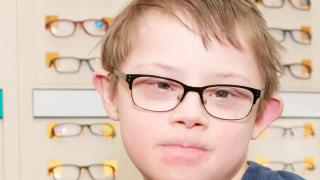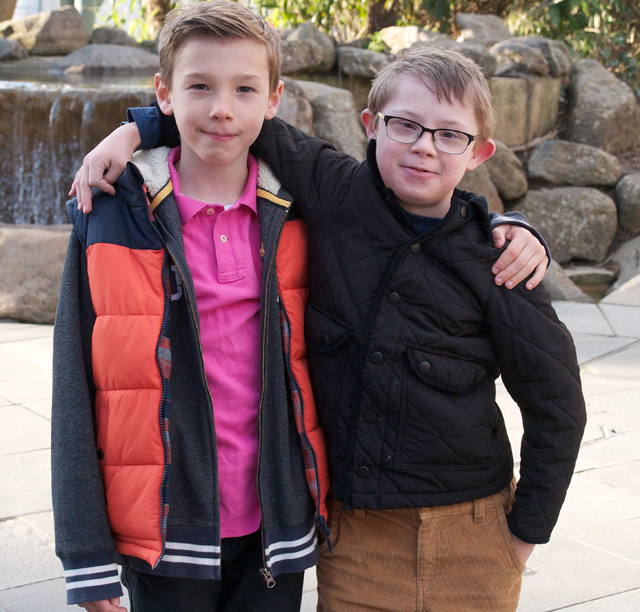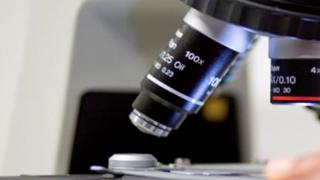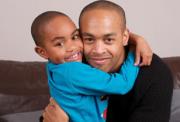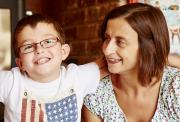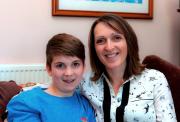Mum Caroline is delighted with the progress in Henry’s reading, writing and everyday skills, like doing up buttons and using IT equipment, which will help him become more independent in the future.
Tests carried out by Dr Margaret Woodhouse at Cardiff University led to Henry’s prescription for bifocals, which have been shown to help children with Down syndrome.
If vision problems are not recognised and corrected, there’s a danger that people might think a child’s learning disability is more severe than it is. People might then have lower expectations of the child than they should have, meaning the child’s learning is unnecessarily affected.”

